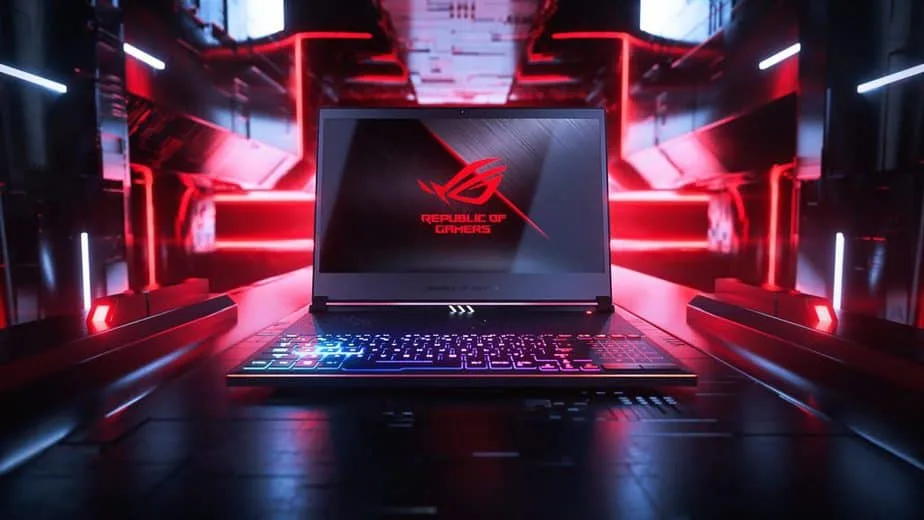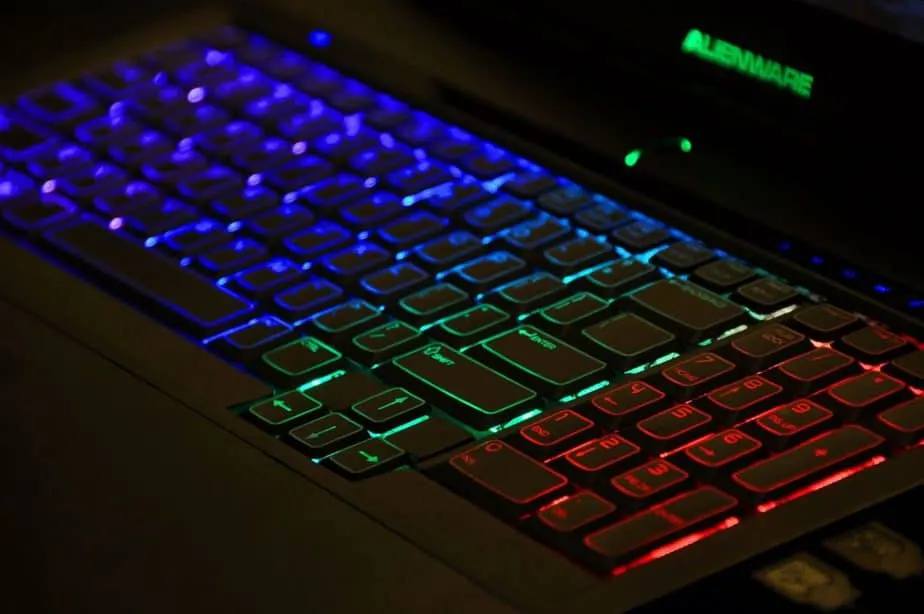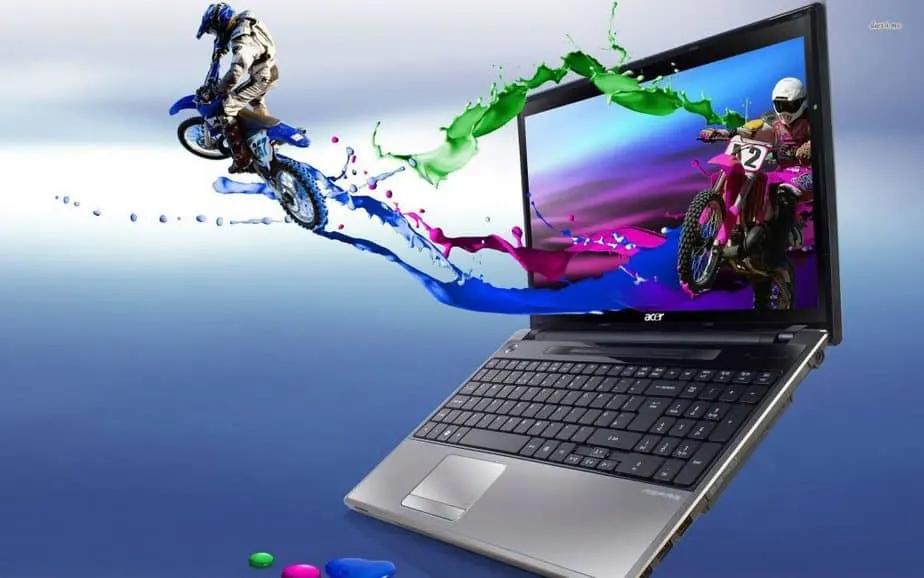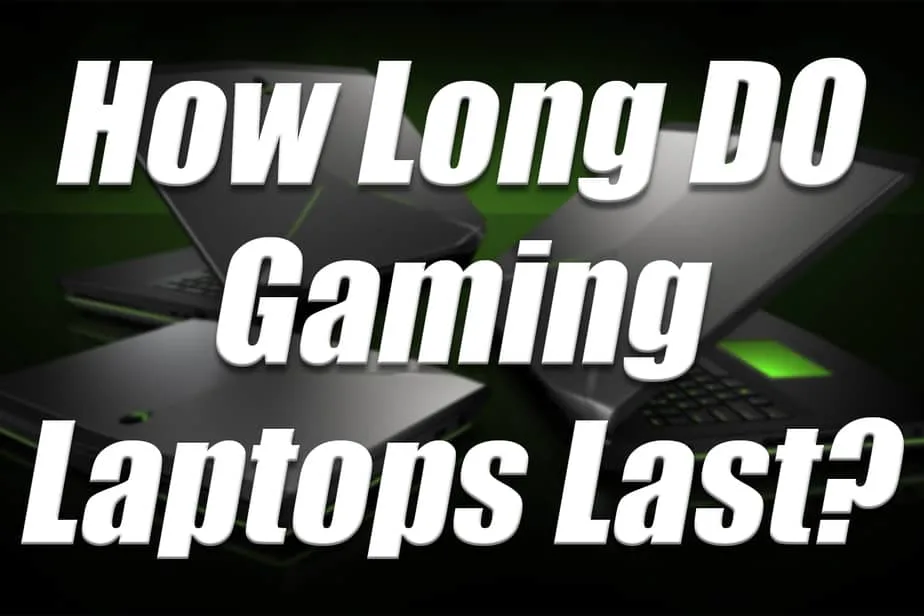Laptops are helpful, but gaming laptops can be a pain compared to their much more powerful desktop brethren. Even though the technology is improving, you have to wonder just how long a gaming laptop will last?
A new gaming laptop should maintain peak performance for at least two years, with its hardware lasting up to ten years through five years of quality gameplay is a decent average to expect.
Many different factors go into how long a gaming laptop will last; however, investing in one is no small task. With the great idea of portable gaming on the go and whatever other utility you need at your fingertips, a gaming laptop sounds fantastic as long as it’s efficient.
So, we will dive into all of the different things to consider when looking for a gaming laptop to make sure that yours lasts longer than the rest.
The Hardware

It all starts with the raw components of how long anything works, and laptops are no different from desktops here. Thanks to new developments in technology, most people aren’t worried about random pieces of their computers spontaneously combusting anymore.
With higher quality materials being used in the components, you can rely on most hardware to last at least ten years. Often the individual hardware components of the computer will long outlast the time where outside technology surpasses them. With this in mind, the most important thing to consider is how long your computer will be able to run the games you want to play.
The CPU
Your CPU isn’t the greatest of considerations in this day and age though there are a few things to look for to ease your mind. For the most part, in the modern era, high-quality gaming computers also include an Intel CPU. Though you can sometimes find AMD processors in laptops as they are improving over time.
Generally, you want to look for an Intel I5 or I7. AMD APUs are more commonly used in desktops. The biggest thing to keep in mind when purchasing your CPU is that it’s powerful enough that it doesn’t bottleneck your GPU. This means you want to make sure that your CPU is just strong enough to match a level near your GPU.
The GPU
Whenever it is time to start looking towards picking up a new computer, any experienced gamer knows the first thing they want to save up for is their GPU, as your GPU is the lifeblood of any modern PC gaming rig.
Taking the time to compare different GPUs and running the games you want to play is always recommended, so you don’t end up with any surprises. There are other solutions for comparing GPUs like websites or just Googling them to see how they handle a specific game.
When it comes to reading a benchmark test, you are just looking for the highest frames per second compared to the resolution you intend to play at. It is hard to tell how long your GPU will stay relevant as technological advances are constantly being made.
Though most serious gamers tend to upgrade their GPU every two years, most people aren’t necessary. If you buy a top-of-line GPU for one year, it will likely last for five years before you start to see noticeable frame rate loss. This can be circumvented for some time, however, by lowering your settings in the newer games.
The Software

While future software might end up being the eventual reason you want to replace your gaming laptop, the operating system isn’t likely to be an issue. With most games running on Windows due to it being the most popular operating system and most commonly used for developing games, there isn’t much to worry about.
Though Microsoft used to release a new Windows version every few years, they have recently moved away from that practice. Their current operating plan is to remove updates for their operating system continually throughout its life over the web.
This means you won’t have to fear a random new operating system coming out and making your computer obsolete through its minimum system requirements. Of course, this isn’t likely to last forever, but the operating system is usually hardly an issue for the hardware required for gaming laptops.
Many gamers also use a Mac or Linux for gaming which means they have even more time to upgrade with less access to newer games.
The RAM
The amount of RAM or random-access memory your computer has is another aspect of gaming that has migrated towards the direction of the CPU. It is sporadic that your amount of RAM will become an issue in your gaming.
This is mainly in part to the focus on making games GPU bound with more powerful graphical processors coming to the market. With this in mind, 8 gigabytes of ram is pretty much perfect for the majority of gaming situations.
On top of that, almost every laptop out of the box will have space for quickly adding additional ram if necessary. If you are sitting at 4 gigabytes of RAM or less, you will probably want to upgrade your RAM, but even still, the GPU-bound nature of the game design allows most of your computer’s RAM to stay working on other processes outside of the game.
If you are experiencing stuttering in your games, your GPU is most likely followed by your CPUs bottlenecking, which can come along with another aspect that we will discuss next.
The Cooling
One of the most significant issues that severely limit gaming laptops compared to the much larger desktops is the space they have for proper cooling. For most gaming laptops, poor fan setups are the main reason they burn out early.
The issue is that the new age GPUs create an extreme amount of heat with more attention towards their power than their efficiency. Due to the space limitations of laptops, many aren’t able to fit in an adequate fan system or any fan system at all.
It is often wise to invest in a cooling pad for an inexpensive way to help keep your laptop a bit cooler. Due to using the power of your computer through USB, they don’t increase your power consumption much. However, even some of the top-of-the-line cooling pads aren’t going to be sufficient for many of the best graphics cards.
For this reason, laptop brands like Alienware stand out with their attention to detail in this area.
Gaming Laptop Care

Even though hardware issues and software requirements might be the main reason that you end up switching your gaming laptop in the future, taking care of your computer can go a long way as well. With proper maintenance, you can often increase the lifespan of your laptop exponentially, with some people using their laptops for as many as 20 years.
The biggest issue with laptops is the amount of dust buildup that naturally will accumulate over time. The more dust that builds up within your computer, the more challenging time it will have dissipating heat, which will make it more uncomfortable to use and decrease the lifespan of its components.
It is recommended to take some time to clean your laptop every 4 to 8 months. Cleaning a computer is different from cleaning a desktop because you are not going to take out all of the components. Instead, it would help if you relied on a few tools to get the job done.
All you need to keep your laptop cleared is a microfiber wipe for simple maintenance and a compressed air gun for removing the dust. Cleaning your computer with compressed air is relatively simple, but you will want to keep a few things in mind.
You will want to hold your laptop on its side so you can see the fan intakes while still keeping the compressed air can upright. This is because if the compact air isn’t correctly working, it could shoot out liquid instead of air and damage your hardware. Hold the can close to the grill and blow out all the dust.
Slowly tilt your laptop around to every angle until you are confident that it has been cleaned thoroughly. Repeat the process for each fan intake. You will need to take them apart for some laptops to clean them properly, and you should consult your manual.
Conclusion
As long as you take proper care of your gaming laptop, it can be almost as reliable as a gaming desktop. There are always going to be the issues that come with having the convenience of a computer.
You aren’t going to be able to play as good games for the same price. This means that it is most important to figure out whether you will be able to spend enough to bridge the gap.
Regardless an adequately taken care of gaming laptop should last between 5 and 10 years, even if it only remains at the top for a couple.

